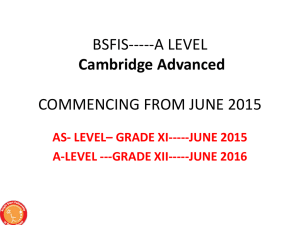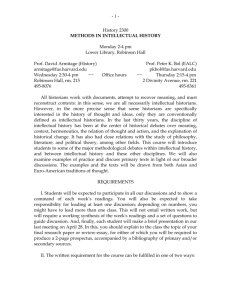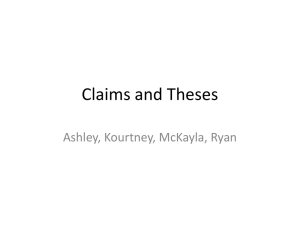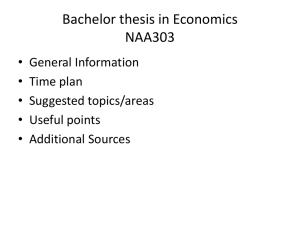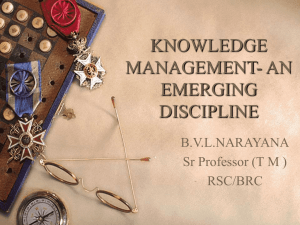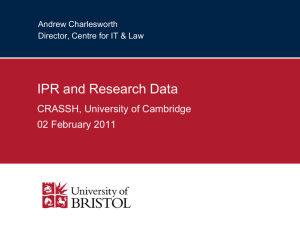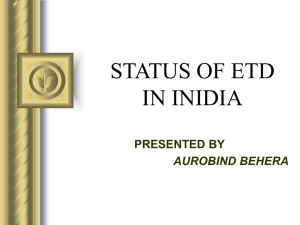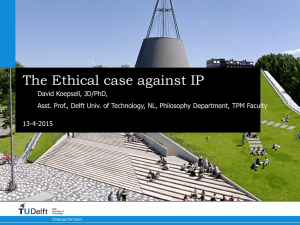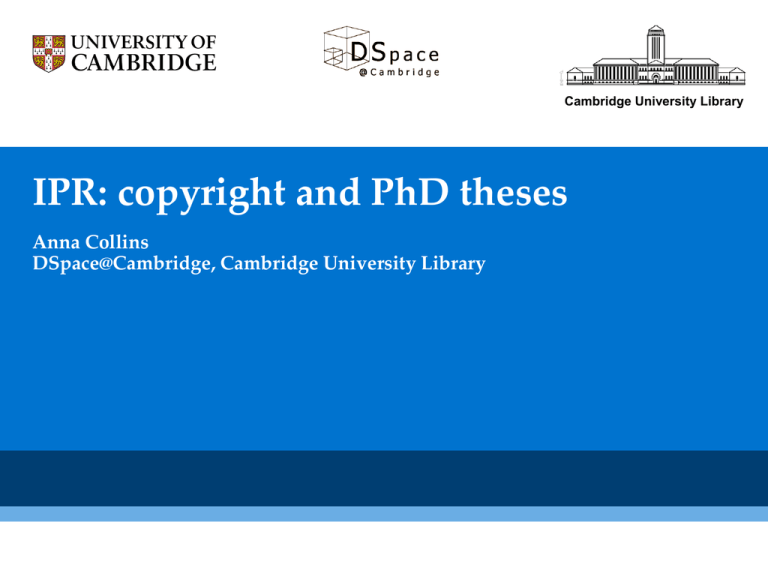
Cambridge University Library
IPR: copyright and PhD theses
Anna Collins
DSpace@Cambridge, Cambridge University Library
Intellectual Property Rights & Research Data
• Important disclaimer – what follows is a very basic
introduction
• These issues are important in regard to research data
• Think how they may affect your research and research data
• Consult further information:
• digital repository websites
• publishers’ copyright policies
• JISClegal website
• contract of employment
Intellectual Property Rights questions
From Jisc report: Researchers of Tomorrow
• Intellectual property rights and copyright are more or less
synonyms.
FALSE
• Copyright is an automatic right and arises whenever an
individual or company creates a work.
TRUE
• Copyright can protect my ideas.
FALSE
• If a work is posted on the internet it is in the public domain and
not protected by copyright law.
FALSE
• If a work does not have a copyright notice, it is not
copyrighted.
FALSE
• If you don't defend your copyright, you lose its protections.
FALSE
Personal & Sensitive Personal Data
Data Protection Act (UK) 1998
Personal Data
• Data relating to living individuals which identifies them: name, age,
sex, address, etc.
Sensitive Personal Data
• Data that may incriminate a person:
• Race, ethnic origin, political opinion, religious beliefs,
physical/mental health, sexual orientation, criminal proceedings or
convictions.
“Appropriate technical and organisational measures shall be taken
against unauthorised or unlawful processing of personal data and against
accidental loss or destruction of, or damage to, personal data.”
Confidential Personal Data
Personal Data that may be considered confidential
• Data connected to the person providing them
• Data which identifies a person (name, addresses, occupation,
photographs)
• Data given in confidence, or agreed to be kept confidential (i.e. not
released into public domain)
• Data covered by ethical guidelines, legal requirements, or research
consent forms
Intellectual Property Rights & Research Data
“Intellectual property rights, very broadly, are rights
granted to creators and owners of works that are the
result of human intellectual creativity”
jisclegal.ac.uk
•
•
•
•
Copyright: Creative works fixed in material form.
Designs: Appearance and shape of product
Patents: Inventions – things that make things work
Trade marks: Signs that distinguish goods and services
• Moral Rights:
– Right to be attributed for your work
– Right to object to derogatory treatment of your work
Creative works fixed in material form
Literary works
Published and unpublished works
Creator’s life +70 years
Unknown creator: 70 years from
creation
Artistic works
Including illustrations, photos, etc.
Creator’s life + 70 years
© periods
Sound recordings
© held by both recorder & recorded
50 years from creation
Typographic arrangements
Layout of text, tables &
arrangement of database etc.
25 years from publication of work
TIP
Look into using
Creative Commons
licences
Freedom of Information & Research Data
Freedom of Information Act 2000
• Any person can request any data held by
public authorities – including universities
• The data do not have to have been produced
by the university
• It just needs to hold the data
• Potential issue for collaborative projects where
multiple copies of data are held in different
institutions and countries
• A request must specify what data are sought
• There are exemptions to releasing
information:
• Planned publication of results and data
Doctoral Theses and Copyright
• May include copyrighted material
• A paper manuscript thesis remains an unpublished
literary work
• A digital e-thesis which is available online is a published
literary work and has to comply with copyright law
• Copyright material can be placed in a restricted appendix
• Copyright material in the paper manuscript can be withdrawn
(redacted) from the online e-thesis version
• An embargo can be placed on the dissemination of the thesis
• Consult e-theses and copyright guidelines of university
libraries or digital repositories
E-Theses: Things to consider
Pros:
• Make your findings available to
all – often indexed and
searchable by Google
Cons:
• Publication plans for thesis check regulations of publisher
• Patents arising from research
• Raise your profile in the research
• Thesis contains sensitive data
community
• Persistent URL with
Dspace@Cambridge
• Handy for CVs and professional
profiles
• Requirements of project sponsor
(eg industrial applications of
research)
• Thesis contains significant
quantity of 3rd party copyright
material
Discuss your options with your supervisor
Make plans early
DSpace@Cambridge
• University of Cambridge’s Institutional
Repository
• Accepts:
•
•
•
•
PhD theses
Journal articles
Research data
Etc…
• Searchable online
• Items will receive a persistent URI
• Items will be preserved in the long term
Copyright - Online Guidelines
Remember that different countries have different
copyright law
University Guidelines
• Students who are not employed by an institution own the copyright of
the work they produce
• Students who part of a larger research project should check the terms
and conditions of their contract
JISC Legal (www.jisclegal.ac.uk)
– Legal guidance for information communication technology use in
education, research, and external engagement
Intellectual Property Office (http://www.ipo.gov.uk)
– Official governmental copyright summary
Acknowledgements
Open Access Post-Graduate Teaching Materials for Research Data
Management
Adapted by Anna Collins (2011) from modules created by Lindsay Lloyd-Smith (2011) for postgraduate training in Archaeology
The Copyright Quiz and the presentation of the eight types of copyright are adapted from training
material originally presented by copyright consultancy Naomi Korn (http://naomikorn.com).
It makes use of training materials produced by the UK Data Archive on Managing and Sharing
Data (under CC-BY-NC-SA 3.0 Unported Licence)
Creative Commons Licence
• The teaching materials are released under Creative Commons licence 2.0 BY-NC-SA.
• You are free to re-use, adapt, and build-upon the work for educational purposes. The material
may not be used for commercial purposes outside of education. If the material is modified and
further distributed it must be released under a similar Creative Commons licence.


